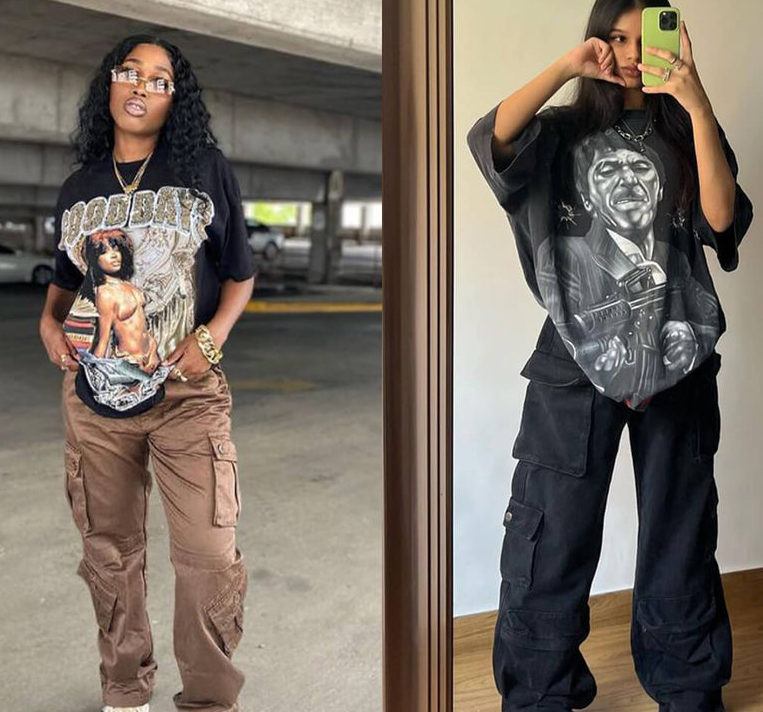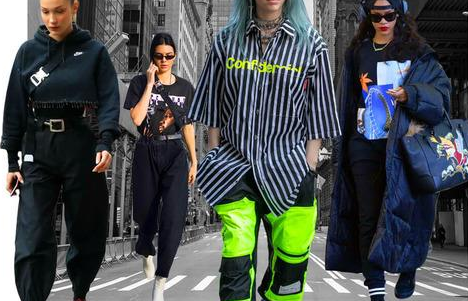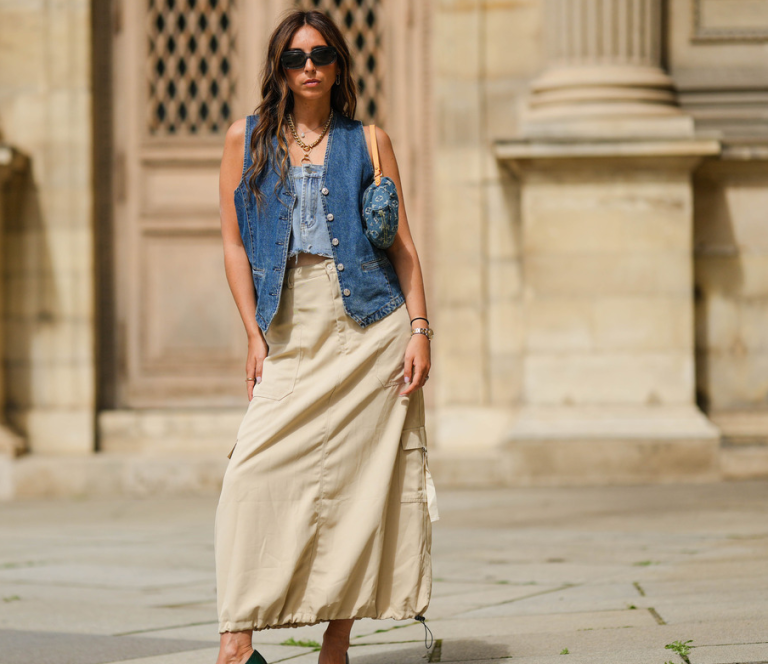
In the sprawling universe of fashion, few trends have ignited as much cultural fervor and enduring influence as streetwear. Born from the vibrant crossroads of urban culture, music, and skateboarding, streetwear has evolved into a global phenomenon that transcends mere apparel. But what exactly is streetwear? What defines it beyond the surface? This comprehensive exploration unpacks the origins, key characteristics, cultural significance, and evolution of this dynamic style to give a definitive answer to what is streetwear style.
Origins: The Roots of an Urban Movement
Streetwear style emerged during the 1970s and 80s, primarily in the bustling cities of New York and Los Angeles. It was a grassroots movement fueled by the creativity of youth culture. Skateboarders, hip-hop artists, and punk rockers all contributed to this aesthetic. The style was a rebellious response to mainstream fashion—a form of self-expression that rejected traditional norms.
One cannot discuss what is streetwear style without acknowledging its deep ties to skateboarding culture. The casual, comfortable, and functional clothing worn by skaters—such as loose-fitting jeans, graphic tees, and durable sneakers—formed the foundational elements of streetwear. Simultaneously, hip-hop artists popularized oversized hoodies, baseball caps, and bold logos, layering the style with urban swagger and identity.
Defining Characteristics of Streetwear Style
To truly understand what is streetwear style, we must dissect its visual and cultural components. Streetwear is a kaleidoscope of elements that blend functionality, artistry, and attitude. Here are some hallmarks that make it unmistakable:
1. Casual Comfort Meets Functionality
Unlike haute couture or corporate attire, streetwear champions comfort and practicality. It thrives on relaxed fits, breathable fabrics, and easy-to-wear silhouettes. From oversized hoodies to cargo pants, every piece aims to balance aesthetics with everyday wearability.
2. Graphic-Heavy and Logo-Driven Designs
Streetwear often flaunts bold graphics, striking prints, and eye-catching logos. These designs aren’t just decorative—they communicate affiliation, cultural references, or personal statements. Brands like Supreme and Off-White mastered this language, turning logos into status symbols.
3. Limited Editions and Exclusivity
Scarcity fuels streetwear’s allure. Many brands release limited runs, capsule collections, or exclusive collaborations, which create hype and desire. This strategic rarity taps into the collector’s mentality and fuels resale markets where pieces appreciate in value.
4. Blend of High and Low Culture
Streetwear breaks down traditional fashion hierarchies. It merges high-end designer aesthetics with everyday utility. For instance, pairing luxury sneakers with vintage tees epitomizes this juxtaposition, making style accessible yet aspirational.
5. Influence from Music and Art
Music genres like hip-hop, punk, and EDM heavily influence streetwear. Simultaneously, street art, graffiti, and graphic design shape its visual identity. This intermingling makes streetwear a living canvas reflecting societal shifts and youth expression.
The Role of Iconic Brands
The narrative of what is streetwear style cannot ignore the pivotal role of brands that have propelled the trend from niche subculture to mainstream prominence. Labels such as Supreme, Stüssy, BAPE, Palace, and Off-White have become synonymous with streetwear.
Supreme
Founded in 1994 in New York City, Supreme began as a skateboarding shop and evolved into a cultural juggernaut. Known for its minimalist box logo and savvy collaborations (with artists, designers, and even luxury houses), Supreme epitomizes streetwear’s blend of exclusivity and mass appeal.
Stüssy
Regarded as one of the original pioneers, Stüssy emerged in the 1980s surf scene of California. The brand’s hand-drawn logo and laid-back vibes captured the ethos of early streetwear perfectly, bridging surf, skate, and hip-hop cultures.
A Bathing Ape (BAPE)
Japanese brand BAPE introduced bold camo prints, ape logos, and vibrant colorways. It brought a distinctly Asian influence to streetwear while gaining global acclaim for its innovative designs and limited drops.
Off-White
Founded by Virgil Abloh, Off-White blends streetwear with luxury fashion, incorporating industrial design elements and high-concept visuals. Its iconic diagonal stripes and quotation marks symbolize the brand’s cutting-edge approach.
Streetwear Style and Its Cultural Resonance
Understanding what is streetwear style involves more than the clothes themselves—it requires grasping the cultural currents they ride. Streetwear is intrinsically linked to identity, community, and social commentary.
A Vehicle for Self-Expression
Streetwear empowers individuals to project identity through fashion. It allows wearers to communicate affiliations, beliefs, or moods without uttering a word. Whether sporting a politically charged graphic tee or a rare sneaker drop, streetwear functions as a social language.
Democratization of Fashion
Unlike exclusive haute couture, streetwear democratizes style. It blurs class lines and welcomes diverse participants. From high schoolers to celebrities, anyone can engage with streetwear culture, creating a vast and inclusive community.
Catalyst for Cultural Exchange
Streetwear facilitates cultural cross-pollination, blending influences from music, art, sports, and global subcultures. This constant fusion generates fresh aesthetics and narratives, keeping the style perpetually relevant.
How Streetwear Style Has Evolved Over Time
The trajectory of streetwear reveals a fascinating evolution, from underground phenomenon to global fashion powerhouse.
From Subculture to Mainstream
Initially, streetwear was a niche within skate and hip-hop communities. But in the 2000s, the rise of social media and influencer culture propelled streetwear onto international runways and retail shelves. Today, luxury brands actively incorporate streetwear elements, underscoring its mainstream status.
The Rise of Collaborations
Collaborations between streetwear brands and high-fashion houses have redefined boundaries. Partnerships like Supreme x Louis Vuitton or Nike x Off-White showcase the fusion of exclusivity and accessibility, amplifying streetwear’s cultural impact.
Sustainability and Ethical Considerations
In recent years, streetwear has begun addressing sustainability. Brands and consumers are increasingly conscious of ethical production, eco-friendly materials, and slow fashion principles, adding a new dimension to the style’s evolution.
Building a Streetwear Wardrobe: Tips and Tricks
For those eager to adopt the style, understanding what is streetwear style practically means knowing how to curate and wear pieces that embody the culture. Here are key insights to help build an authentic streetwear wardrobe:
Prioritize Statement Pieces
Start with bold items that capture attention—graphic hoodies, distinctive sneakers, or iconic logo tees. These anchor your look and convey personality.
Mix High and Low
Combine luxury items with everyday basics to achieve streetwear’s signature contrast. For example, pair designer sneakers with vintage denim or thrifted jackets.
Layer Creatively
Layering is a powerful streetwear tool. Experiment with oversized outerwear over slim fits or combine textures like cotton, denim, and nylon for visual interest.
Accessorize Intentionally
Caps, beanies, chunky chains, and branded backpacks elevate streetwear outfits. Accessories complete the narrative and add flair.
Follow Influencers and Communities
Stay inspired by following streetwear influencers, forums, and social media groups. Observing current trends and styling hacks can refine your personal aesthetic.
Streetwear Style: The Future Outlook
As streetwear continues to evolve, its trajectory suggests sustained cultural and commercial significance. The style is poised to expand into new territories, incorporating emerging technologies like augmented reality for virtual try-ons or blockchain for authentication of limited drops.
Moreover, streetwear’s intersection with sustainability and diversity movements will shape its ethos and design. Expect an even richer tapestry of influences as it adapts to global conversations about identity, inclusion, and environmental responsibility.
Answering what is streetwear style unveils a layered, multifaceted phenomenon that is much more than clothing. It is an evolving cultural force rooted in community, creativity, and self-expression. From its modest skate and hip-hop origins to its current dominance in fashion, streetwear reflects the zeitgeist of urban youth culture while continuously reinventing itself. Understanding this trend offers valuable insight into how fashion transcends fabric to become a living, breathing narrative of society itself.
Whether you are a seasoned enthusiast or new to the scene, embracing streetwear means engaging with a culture rich in history, innovation, and raw authenticity. This is not just a style—it is a statement.







